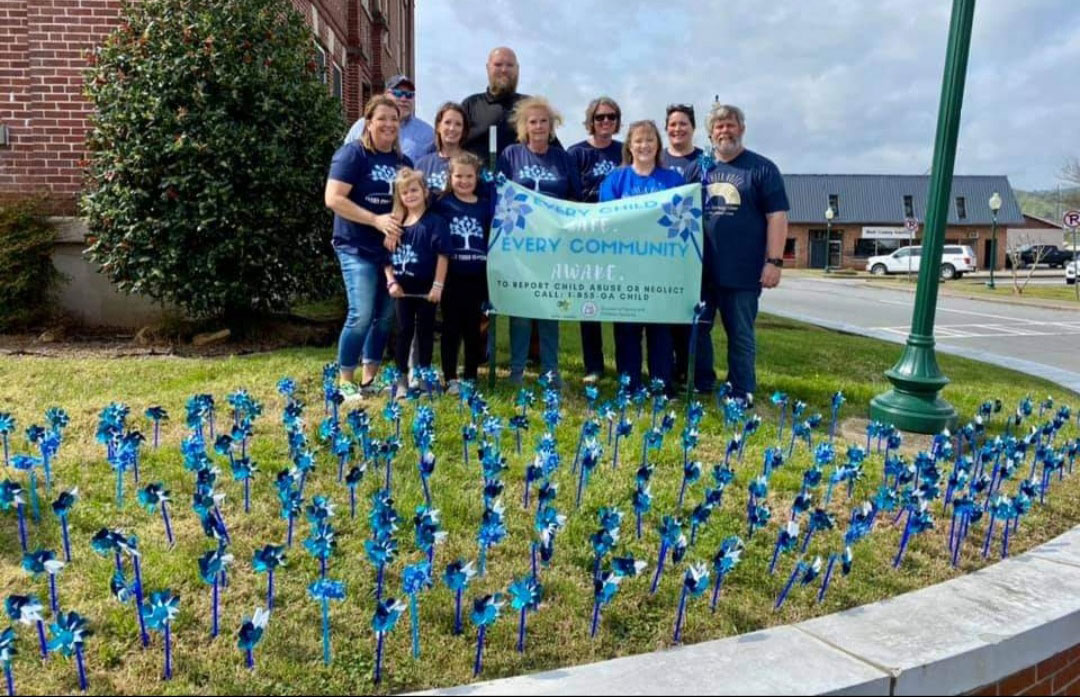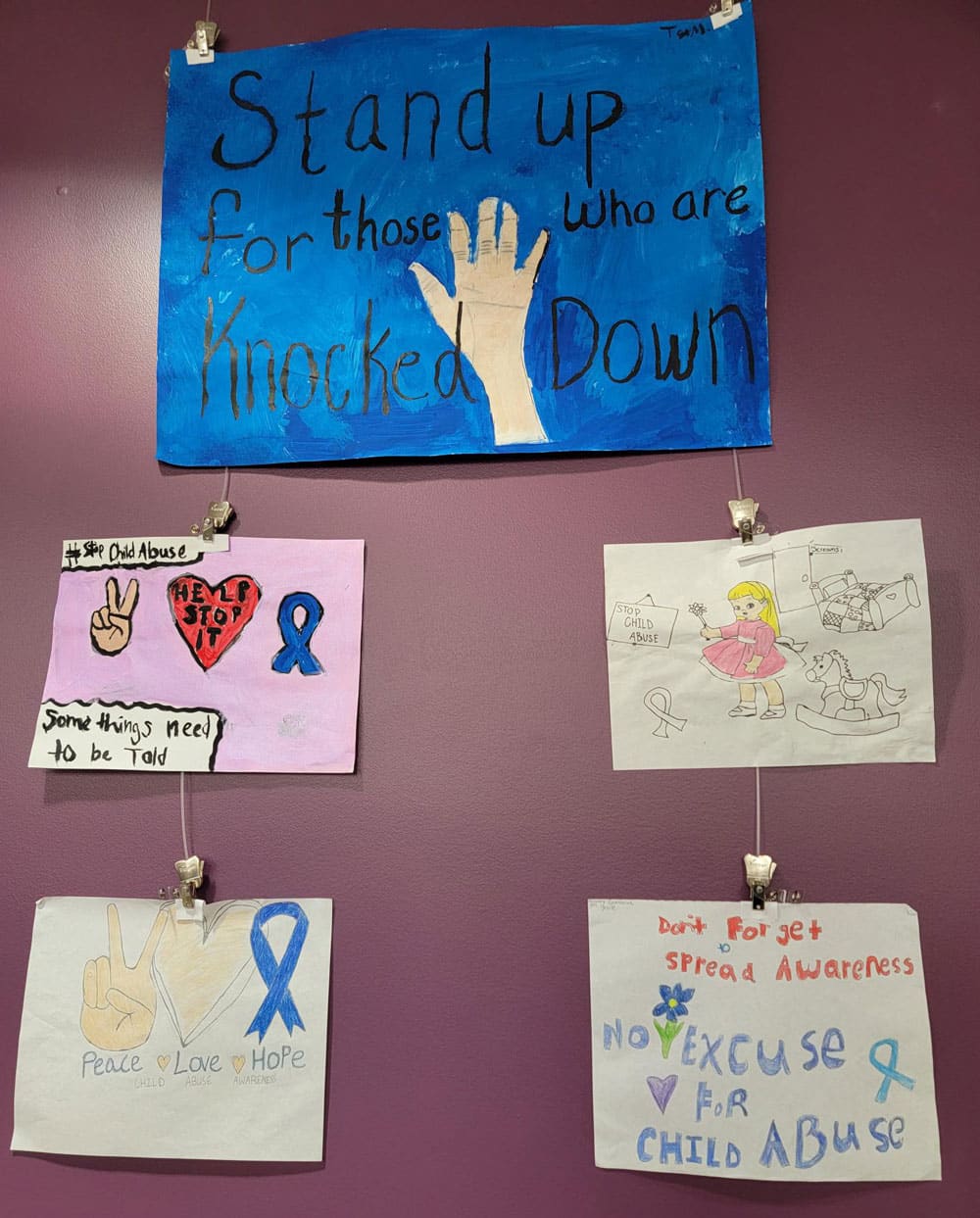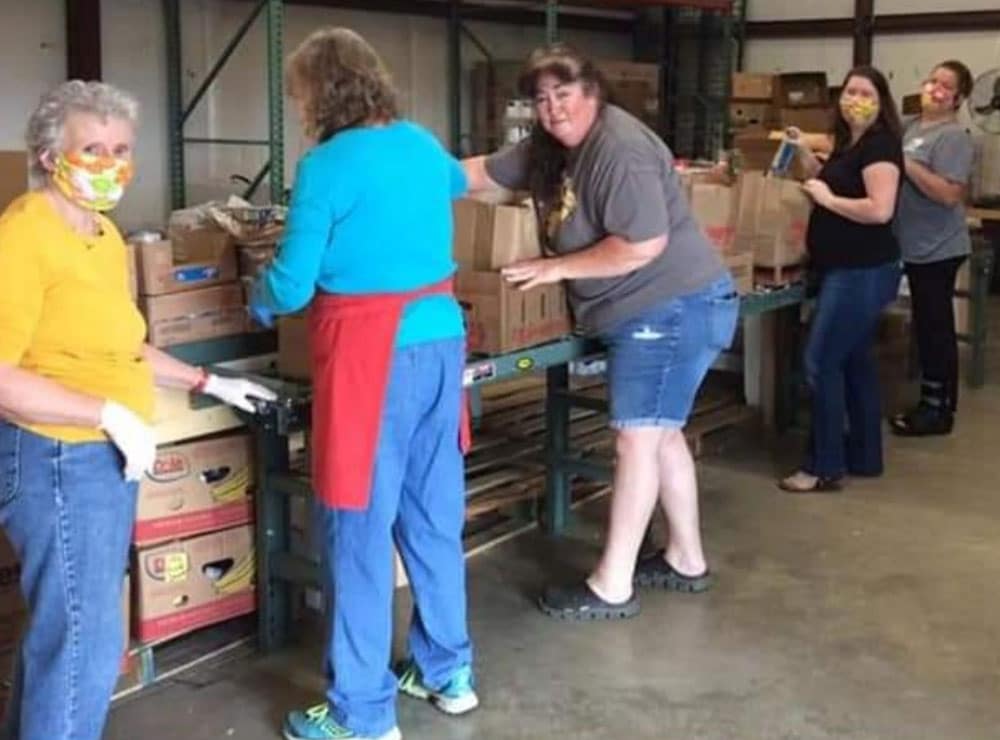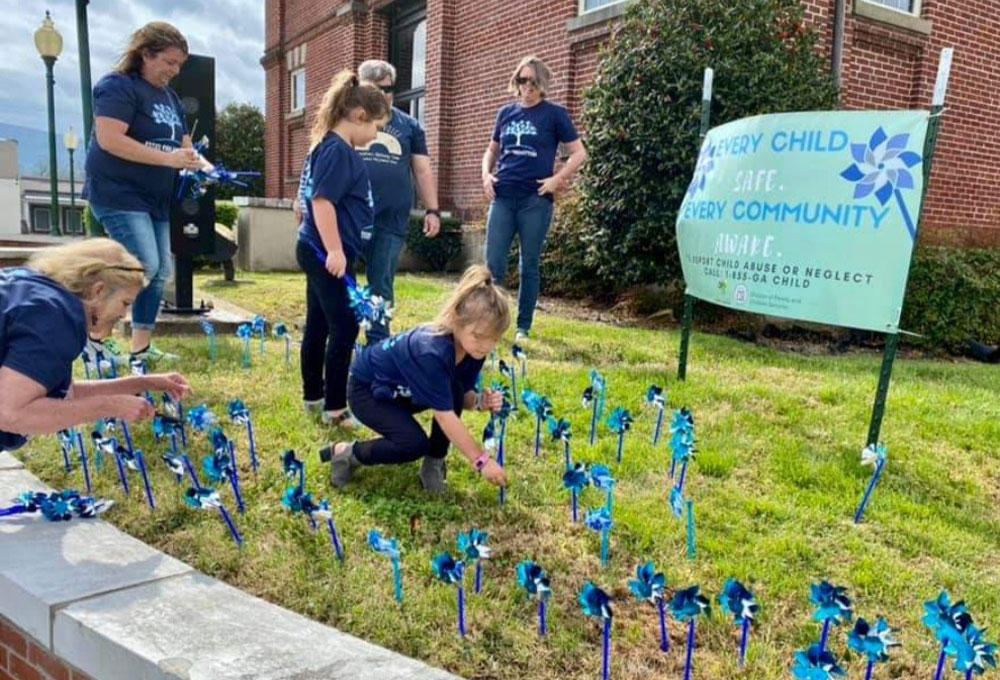Pandemic Shutdown Opens New Doors for Partnerships
Print This Post
by Diana St. Lifer
Two years into the Family Support Cohort, Dade First-Family Connection had created substantial momentum in implementing child abuse and neglect awareness and prevention programs within the small northwest county. The Blue Ribbon Glow Run shed light on the issue, early intervention classes focused on breaking the cycle of generational abuse, and workshops helped build parenting skills and provide a support network. Then COVID-19 hit.
“The first two years of the cohort we were doing great,” said Martha Baker, Dade First-Family Connection coordinator. “The Division of Family and Children Services (DFCS) told us reporting numbers were down and that what we were doing was really making a difference.”
The number of children with a substantiated incident of child abuse and/or neglect in Dade County went from 47 (14.9 rate per 1,000) in 2018 to 14 (4.5 rate per 1000) in 2019, according to Georgia KIDS COUNT data.
A teacher and quality monitor of Head Start Resource Agency of North Georgia before joining Family Connection, Baker was new to the organization when the Family Support Cohort was created in 2017. She hit the ground running, working to build relationships within the community, including the Sheriff’s Office, Dade County Public Library, Board of Education, Lookout Mountain Community Services, Darkness to Light, Primary Healthcare Center of Dade, and the Four Points, Inc. visitation center that provides services for cases working with DFCS.

Although the pandemic-driven shutdown slowed the momentum of the cohort work in Dade, it didn’t halt the effort to support residents in need during a challenging time. It actually opened the door for new partnerships.
“We had to change our focus to what was needed at the time,” Baker said. The first priority was getting food to those who needed it most. With just days to prepare, Family Connection and the Tri-State Food Pantry organized a drive-through meal distribution during what would have been the schools’ spring break. More than 1,000 residents received hot meals and snacks over two days, and students were given books and craft supplies—all distributed with the help of volunteers from Rising Fawn Baptist Church and Trenton United Methodist Church. “Social distancing and a food shortage made this even more of a challenge, but we did it. To see that come together so beautifully and quickly was amazing,” she said.
Subsequently, the food pantry received a $5,000 grant from Georgia Power to increase its partnership with the Collaborative. “It happened organically,” said Baker. “What we’re doing made sense to them and what they’re doing made sense to us.”

The food pantry and the churches, which were also new partners that emerged from the pandemic, continue to stay engaged with the Collaborative and have joined forces to create a youth group to pack food boxes at the pantry. As new initiatives came about, others were transformed to conform to safety guidelines while still making an impact.
The Blue Ribbon Glow Run to raise awareness of child abuse and neglect prevention began with Family Support Cohort funding in 2018, and attracted 1,000 participants and 37 agency booths during Child Abuse Prevention Month in April of 2019. The event was cancelled in 2020 and 2021 due to safety concerns related to COVID-19, but Baker knew the message about prevention awareness still needed to get out.
“Everybody loves the glow run so I was disappointed we couldn’t do it,” Baker said. “But I still wanted to do something that was manageable and meaningful that we could continue going forward.”
Pinwheels were placed around The Square—an old courthouse in the center of town—representing the 260 forensic interviews the Child Advocacy Center of the Lookout Mountain Judicial Circuit conducted in 2020. The 260 pinwheels were accompanied by banners with the child abuse prevention hotline phone number and the slogan “Every Child Safe. Every Community Aware.”

“Everyone has to drive around that square to get anywhere,” Baker said. “It made a big statement.” The hope is the pinwheels will be placed again next year with the glow run as the culminating event the last day of the month.
This year students also created art projects depicting what child abuse prevention meant to them that were on display in the public library.
Meetings and programs, such as the Parent Cafés, will continue to have a virtual option as it provides greater opportunity for participation. Café topics have included teen internet safety, self-defense, and childhood mental health. An upcoming Civic Dinner topic is also a reflection of the times as participants will discuss “Parenting in a Pandemic.”
Baker said she also became aware during the past year that parents with special needs children were underserved in Dade County, so a support group for this community has been formed and is working on a resource guide.
Family Support Cohort funding also launched Next Chapter, a recovery program for inmates, which is now sustained through a grant from the Institute of Museum and Library Services (IMLS). “Without the cohort funding for the initial computers and video streaming equipment, Next Chapter would have never been considered for the IMLS grant to grow the program further,” Baker said. The program is crucial in the county where recidivism is high. According to the IMLS grant proposal the Dade County jail booked 1,464 inmates in 2018—almost 9% of Dade’s 16,285 population.
Baker said sustaining programs that were started with Family Support Cohort funding is vital, and a Pittulloch Foundation grant for Dade and other Collaboratives in the region will help do just that. “The goal is to build a region of resilience, and the work being done in the cohort flows right into that,” she said, adding the continuation of Civic Dinners as well as screenings of the documentary “Resilience: The Biology of Stress & The Science of Hope” will continue thanks to the grant.
But not all initiatives require a lot of funding. Baker learned about the “Handle with Care” program that involves law enforcement and the schools from fellow cohort member Brigette Barker, executive director of Lumpkin County Family Connection. The initiative allows police officials to notify a school if a student is involved in an incident—whether or not DFCS is notified—with a note that reads: “Handle with Care” and the student’s name.
“That’s it,” Baker said. “There’s no other information. This way if the student seems off in class or wants something extra at lunch, the note has let the school know that something has happened with that child and to be extra sensitive. It’s simple and there are no privacy issues. It has helped a lot, especially in our elementary school.”
Baker said the challenges of the past year due to the pandemic have ignited a renewed sense of community in Dade. “It’s always a beautiful thing when we see people come through a difficult time,” she said. “People were scared and unsure of what was going to happen, but everyone came together—even those who were at risk themselves.”
Anthony Dye, executive director of the Children’s Advocacy Center-Lookout Mountain Judicial Circuit (CAC-LMJC), which is the local Prevent Child Abuse council for the area, said the community is fortunate to have Dade First-Family Connection working to support families. “Martha and Family Connection help the Center in so many ways,” Dye said. “They are always willing to assist with prevention and awareness activities.”
The work, he said, goes beyond Awareness Month in April with involvement in the Center’s fundraisers and annual conference. In turn, CAC-LMJC staff attend trainings the Collaborative offers and has given presentations at Collaborative meetings.
“Martha also has introduced the Center to new community partners and opened new doors for us,” Dye said. “We couldn’t do half the work we do in Dade County without Martha and Family Connection.”
Strengthening relationships and supporting parents and the home environment is the root of preventing child abuse and neglect. That is at the heart of the Georgia Family Connection Partnership Family Support Cohort. Learn more.
Contact:
Bill Valladares
GaFCP Communications Director
404-739-0043
william@gafcp.org
Follow us on Twitter: @gafcpnews
Connect with us on Facebook.
